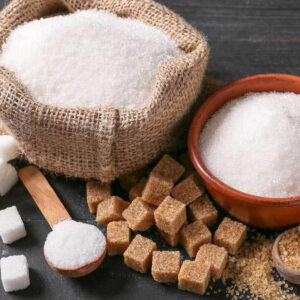Understanding beet sugar vs cane sugar helps consumers make educated choices about their diet.
Understanding beet sugar vs cane sugar helps consumers make educated choices about their diet.
Blog Article
Discover the Uses and Advantages of Beet Sugar Vs Cane Sugar in Your Daily Diet Plan
Exploring the unique qualities of beet and cane sugar reveals greater than simply their sweetening capacities; it highlights their unique influences on health and wellness and cookeries. Beet sugar, understood for its subtle taste, is commonly favored in fragile treats, whereas cane sugar, with its tip of molasses, includes splendor to robust recipes. Each kind holds its very own dietary account and glycemic implications, welcoming a deeper understanding of their functions in a well balanced diet regimen and sustainable usage practices.
Origin and Manufacturing Processes of Beet and Cane Sugar

The unique climates and soil types needed for expanding sugar beetroots and sugarcane add to differences in their cultivation practices and geographical circulation, influencing the economics and sustainability of their manufacturing. beet sugar vs cane sugar.
Nutritional Contrast In Between Beet Sugar and Cane Sugar
Regardless of originating from various plants, beet sugar and cane sugar are nutritionally extremely comparable, both largely consisting of sucrose. Each offers about 4 calories per gram, converting to about 16 calories per tsp. Structurally, both sugars are composed of roughly 99.95% sucrose, with marginal amounts of other materials like moisture and trace minerals, which do not considerably modify their nutritional accounts.

Inevitably, when choosing between beet sugar and cane sugar based upon dietary web content alone, both deal the same advantages and drawbacks as they are essentially kinds of the exact same molecule-- sucrose, offering quick power without other nutrients.
Effect on Health: Glycemic Index and Caloric Material
Checking out better right into the impacts of beet sugar and cane sugar on health and wellness, it is crucial to consider their glycemic index and calorie content. The glycemic index (GI) of both beet and cane sugar is around 65, classifying them as high-GI foods, which can cause fast spikes in blood glucose levels.
Each sort of sugar consists of about 4 calories per gram, making their caloric web content equivalent. For those monitoring calorie consumption, specifically when managing weight or metabolic health and wellness problems, understanding this equivalence is crucial (beet sugar click for more info vs cane sugar). Nonetheless, too much usage of any kind of high-calorie, high-GI food can add to wellness issues such as obesity, cardiovascular disease, and insulin resistance.
Environmental and Economic Considerations of Sugar Manufacturing
Beyond health and wellness effects, the manufacturing of beet and cane sugar also increases substantial environmental and economic concerns. Sugar beet growing often tends to call for cooler environments and has a lower geographical impact compared to sugar cane, which prospers in tropical regions. Nevertheless, both crops are extensive in terms of water usage and land line of work, potentially bring about deforestation and water scarcity. Economically, the worldwide sugar market is highly volatile, influenced by modifications in worldwide profession policies and aids. Several countries incentivize sugar manufacturing web link via financial support, skewing market value and impacting small farmers adversely.
In addition, making use of pesticides and fertilizers in both beet and cane sugar cultivation can bring about soil deterioration and air pollution, further impacting biodiversity and regional water bodies (beet sugar vs cane sugar). The choice in between growing sugar beet or cane usually pivots on regional ecological conditions and financial factors, making the sustainability of sugar production a complicated concern
Culinary Applications and Taste Distinctions
While the ecological and economic aspects of sugar production are certainly considerable, the option in between beet and cane sugar additionally affects cooking applications and flavor accounts. Beet sugar, originated from the sugar beet plant, is understood for its extremely neutral taste. This makes it a flexible component in cooking, where it does not alter the taste of various other components. It dissolves rapidly and is perfect for usage in cakes, cookies, and pastries.
Walking cane sugar, removed from sugarcane, typically retains molasses traces, which present a distinct richness and depth. This slight molasses taste improves the complexity of baked products, sauces, and sauces. It is especially preferred in items where a caramel touch is wanted, such as in brownies or gingerbread. Additionally, the slight variant in moisture content you can try this out in between beet and cane sugar can impact the texture and consistency of recipes, making cane sugar a favored option for details dishes that gain from its one-of-a-kind buildings.

Verdict
To conclude, both beet and cane sugar have unique origins and manufacturing procedures, providing comparable nutritional profiles with mild differences in sodium web content and taste. While their effect on health, particularly relating to glycemic index and calories, is similar, the selection in between them typically comes down to ecological, financial aspects, and particular culinary requirements. Comprehending these facets can guide customers in making informed decisions that line up with their wellness goals and flavor choices.
Report this page